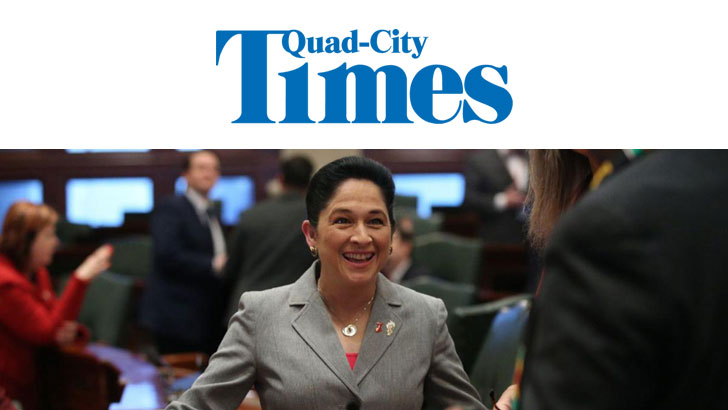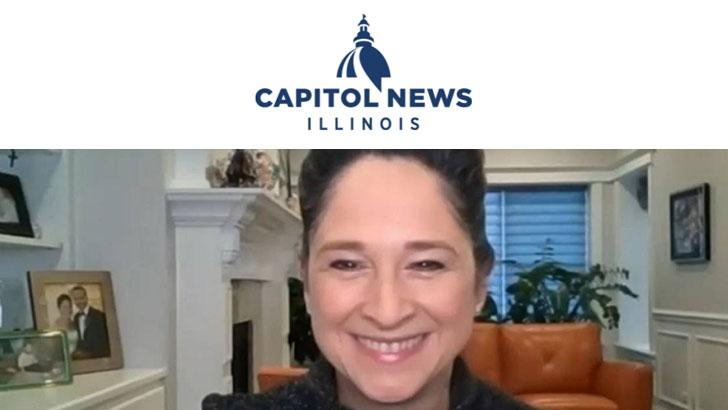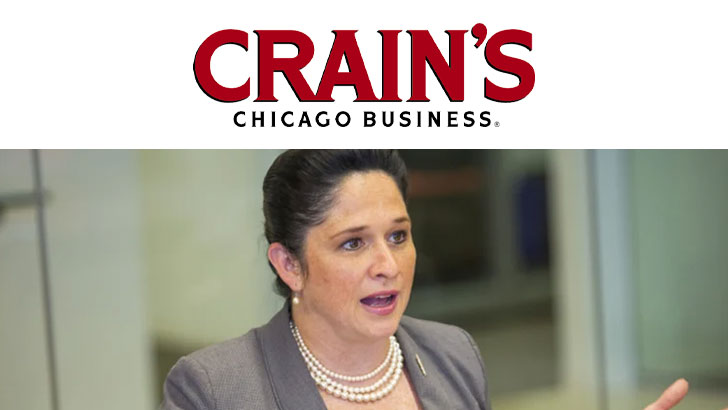Editorial: Smaller backlog is welcome news

Editorial: Is Illinois no longer a deadbeat? Not exactly…
May 5, 2021
Illinois Comptroller Calls For Fiscal Discipline To Maintain Reduced Bill Backlog [AUDIO]
May 13, 2021— Quad-City Times | Editorial Board —
Remember, a few years back, when Illinois was regularly letting its bills stack up. Like a freeloader with big spending appetites —but without the income to match — the state was regularly letting the bills from social service agencies, health care facilities and myriad other vendors go unpaid.
The situation got so bad that, in 2017, the state’s backlog of bills reached $16.7 billion. Some vendors complained they hadn’t been paid in more than a year.
The stack took years to build. In 2015, the backlog stood at $5 billion, but it grew sharply afterward, doubling to more than $10 billion by 2017 and then hit its peak in November of that same year.
We remember those days well. Some agencies in the Quad-Cities that we talked to back then had to take out lines of credit and cut staff to get by. Area foundations stepped in to help out. It wasn’t pretty.
Well, about a week ago, Comptroller Susana Mendoza offered up some good news for the state on this front: The backlog has now shrunk to about $3.5 billion.
Within a $42 billion budget, her office said, that means the state now is close to a 30-day repayment cycle.
“For the first time in many years, the state of Illinois can pay its bills as they come in,” the comptroller’s office said in a news release.
We think that deserves recognition.
The state has worked hard to get where it is. It sold $6 billion in bonds in 2017 to pay off a big chunk of the backlog. The comptroller’s office says that by paying off bills that had accrued since before 2017, an estimated $4 billion to $6 billion is being saved in lower interest costs through the year 2029. That’s no small amount of money.
We all know that Illinois’ fiscal problems are still significant, and Mendoza pointed that out in her announcement. Just paying the bills in a timely manner is one of the things a reliable government does. But it’s obviously not the only thing it does to prove it’s a good steward of taxpayer money.
Illinois still has a lot of work to do, principally in dealing with its pension problems. The shortfall in the state’s pension systems, long a millstone, exceeds $140 billion, and we haven’t seen a workable plan yet to dig out of the hole. The state also typically spends more than it raises, and lawmakers and the governor haven’t yet finalized a 2022 budget.
Mendoza notes the newly shrunken backlog doesn’t take into account the $3.6 billion the state borrowed from the Federal Reserve, and that it shouldn’t rely on Covid relief funding to put together a budget. She says the state should use the money to pay off its Fed debt first.
We agree. We realize there are a lot of demands for money, but we’d like to see this string of good financial news continue. The governor has proposed a budget with spending restraint, but also a request for new revenue. We’re hoping for a balanced budget without the gimmicks.
Mendoza’s announcement is a reminder of the bad-old-days not all that long ago, but it’s also a sign of the progress that’s been made, too, and not just for those who are owed money. The idea that the state is paying its bills in a timely manner should be greeted as progress. True, it’s low-hanging fruit, but we’ll take it.
The comptroller’s office says it has informed the bond rating agencies about the shrinking backlog, and it is encouraging them to consider this progress when considering the state’s creditworthiness. We hope it gets noticed. Good financial news isn’t something that visits Illinois too often. But when it does, it should be rewarded. It also is something that policymakers should be eager to build upon.
Stay up to date
Sign up to be a part of Team Susana today! You will receive notifications on activities, announcements and more.





BGA David Greising: Illinois needs to rely on the right voices to get its financial house in order
Read more